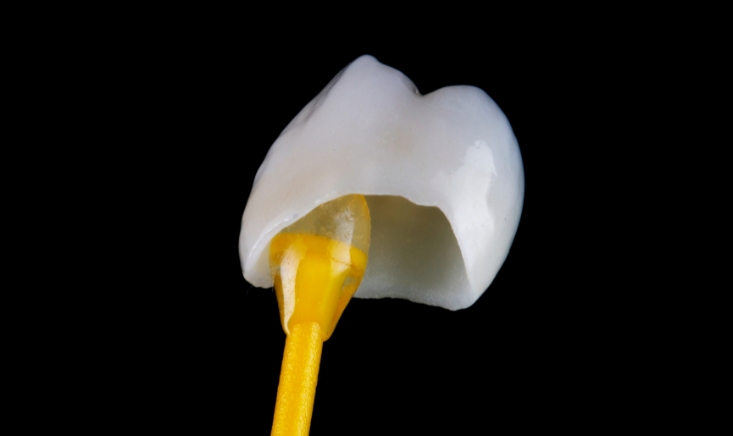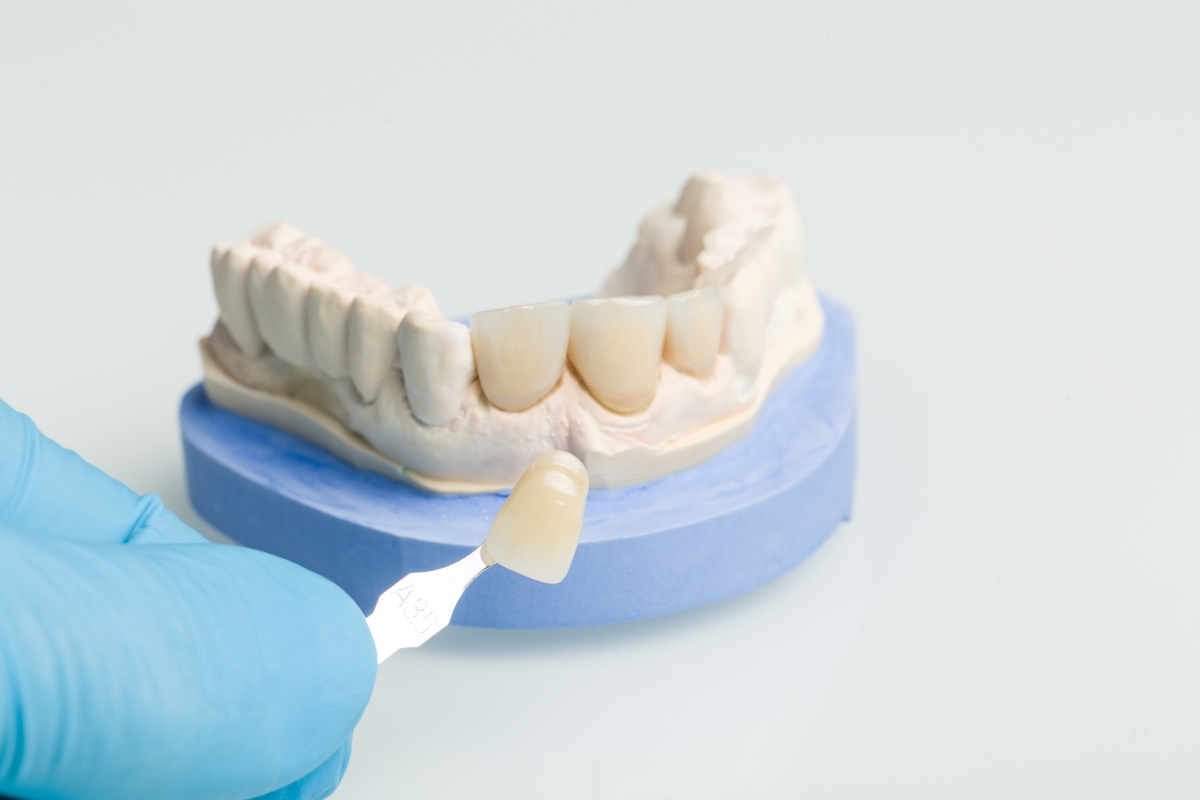1001 W Indiantown Rd, Ste 106, Jupiter, FL 33458
Understanding Dental Crown Maintenance: Tips from Jupiter Dentist

Dental crowns are a popular solution for restoring damaged teeth, but they require proper care to stay functional and attractive. Whether you’ve just received a crown or have had one for years, knowing how to maintain it is essential. Good dental crown maintenance will ensure your restoration lasts longer, providing you with a beautiful smile and protecting your natural tooth underneath.
In this blog, we’ll provide helpful tips on how to take care of your crowns effectively. These easy-to-follow steps will help you maintain your dental crowns for many years to come.
Handle Your Crowns with Care
Sometimes, the simplest actions can have the most significant impact on the longevity of your dental crowns in Jupiter. Here are some additional tips:
- Use your teeth properly: Never use your teeth to open packages or bite into tough objects. This can put unnecessary stress on your crowns and lead to cracks or loosening.
- Be cautious with dental work: If you’re undergoing any additional dental work, such as cleaning or filling, inform your dentist about your crowns. They can take extra care around them to avoid damage.
- Protect your crowns during physical activities: If you play sports, consider wearing a mouthguard. This will protect both your natural teeth and crowns from injury.
Taking small precautions can greatly extend the life of your dental crowns.
Avoid Certain Foods and Habits
While dental crowns are designed to be durable, some foods and habits can damage them. To protect your investment, follow these tips:
- Avoid sticky foods: Chewing gum, caramel, and other sticky foods can pull at your crowns and loosen them over time.
- Limit hard foods: Hard candies, nuts, and ice can cause crowns to crack or chip. Always be cautious when eating such foods.
- Don’t bite your nails: Nail-biting can damage both your crowns and natural teeth. It’s a habit worth breaking!
- Stop grinding your teeth: If you grind your teeth, consider wearing a nightguard. Grinding can cause excessive wear on your crowns.
Being mindful of the foods you eat and habits you practice is an essential part of dental crown maintenance.
Regular Dental Check-Ups
Regular visits to your dentist are essential for long-term crown care. These appointments give your dentist a chance to check the condition of your crowns and overall oral health.
- Examine the fit: Crowns may shift slightly over time. A check-up allows your dentist to make sure they are still fitting properly and not causing any discomfort.
- Check for signs of damage: During your appointment, your dentist will examine your crowns for cracks or other issues.
- Professional cleaning: Dental hygienists provide a thorough cleaning that removes buildup around your crowns that regular brushing and flossing may miss.
Regular check-ups also help detect issues early, preventing costly repairs later. Incorporating this step into your dental crown maintenance plan will help keep your crowns in top shape.
Daily Care for Dental Crowns
Proper daily care is crucial in preserving the integrity of your crowns. Here are some basic tips for everyday maintenance:
- Brush regularly: Brush your teeth twice a day with fluoride toothpaste. This helps remove plaque and bacteria that can cause damage.
- Floss daily: Flossing removes food particles stuck between your teeth and under the crown. Consider using a floss threader if it’s hard to reach those areas.
- Use a soft-bristled toothbrush: Hard bristles can cause wear and tear on both your crowns and natural teeth. Choose a soft-bristled brush for gentler cleaning.
- Rinse with mouthwash: Use an antibacterial mouthwash to reduce bacteria and prevent gum issues around your crowns.
Daily care is the first step in effective dental crowns maintenance, ensuring they stay clean and functional.
Signs It’s Time to Visit Your Dentist
Even with regular care, dental crowns may require attention from time to time. Be on the lookout for signs that your crown needs professional attention:
- Loose crowns: If your crown feels loose or doesn’t stay in place, see your dentist right away.
- Pain or sensitivity: Any discomfort or sensitivity around the crowned tooth could indicate an issue that needs to be addressed.
- Visible damage: If your crown cracks or chips, it’s important to schedule an appointment for repair or replacement.
Proper dental crowns maintenance is simple and easy when you follow the right steps. Brushing, flossing, avoiding harmful foods, visiting your dentist regularly, and handling your crowns with care can keep them functioning properly for many years. By staying proactive with your crown care, you’ll enjoy a beautiful, healthy smile for years to come.



